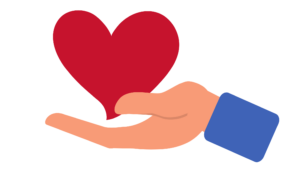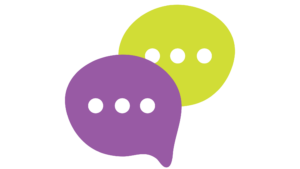What is Confidentiality?

Meic is a confidential service. Let’s talk about exactly what that means.
What does confidentiality mean?
Confidentiality means that we won’t tell anyone else what you’ve said.
It’s important that you can talk about what’s going on in your life knowing it won’t be passed on to anyone else. Meic advisers understand this and are here to support you.
When you contact Meic, what you tell us won’t be passed on to any other person or organisation outside of Meic unless you want it to. The adviser might discuss your situation with a colleague sometimes to make sure that you get the right help.
Is Meic always confidential?
Meic is almost always confidential. On rare occasions we have to tell someone else what you’ve told us. We would only need to do or say something if:
You’re under 18 and…
- You ask us to
- We believe your life or someone else’s life is in danger
- You’re being hurt by someone or might be hurt by someone (this is called significant harm)
- You tell us that someone else is being hurt
- You tell us that you’re seriously harming another person
- You tell us that you, or someone else, has committed a serious crime (such as murder or terrorism)
- You tell us that you, or someone else under 18, has experienced abuse (even if it’s not happening at the moment)
You’re over 18 and…
- You tell us about a child or young person who is at risk of harm
- You’re in a life-threatening situation (in immediate danger)
- You tell us that you, or someone else, has committed a serious crime (such as murder or terrorism)
When do we tell someone what you’ve told us (break confidentiality)?
Breaking confidentiality is a difficult decision for a Meic Adviser, and there are many things to consider. One of the main factors in deciding whether to tell someone else depends on how things develop during your conversation. If at any point during our conversation you tell us that you’re going to act on suicidal feelings, that you or someone else is unsafe, or we believe you’ll be in danger when you end the conversation, then we have to tell someone else to help protect you or another person. We always think about how well you understand what’s going on and if you can make your own decisions about your situation, while also ensuring everyone stays safe.
What happens when we break confidentiality?
Normally the adviser can’t see your details (like your phone number, IP address, profile picture etc). If you tell us that you or someone else is in danger or at risk of being hurt, our system administrators can find that information. This can be shared with emergency or social services so that they can help you. We only do this when we feel we have to, and we always try to discuss this with you before we speak to anyone else, unless you leave the discussion before we’ve had a chance to tell you why we’re worried and why we need to share that information.
For example:
- We may need to contact the police and get an ambulance to you if you’re attempting suicide
- We may need to contact Social Services (they are a government organisation that helps children, adults and families and put support in place to keep children safe) so that they can help protect you
We understand that it’s sometimes hard to tell someone what’s happening to you. You might feel scared to talk to other people about your situation. Maybe you’re worried about getting yourself or others (family or friends) into trouble and that by telling someone it will be your fault.
We’re here to support you through this and make sure that your views are listened to. We want to help you feel safe.
Whenever we contact other organisations, like the police or Social Services, we’ll stay with you on the phone, WhatsApp, online chat, or text, if you want us to. We’ll let you know what’s happening and can answer any questions you have.
If you have any questions about confidentiality, you can ask the Meic adviser at the start of your conversation.






















